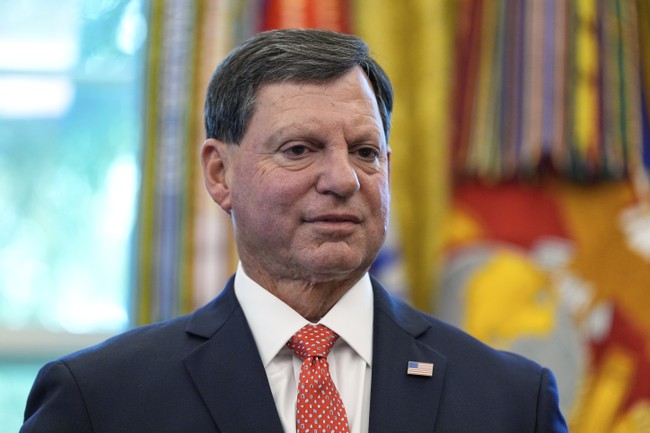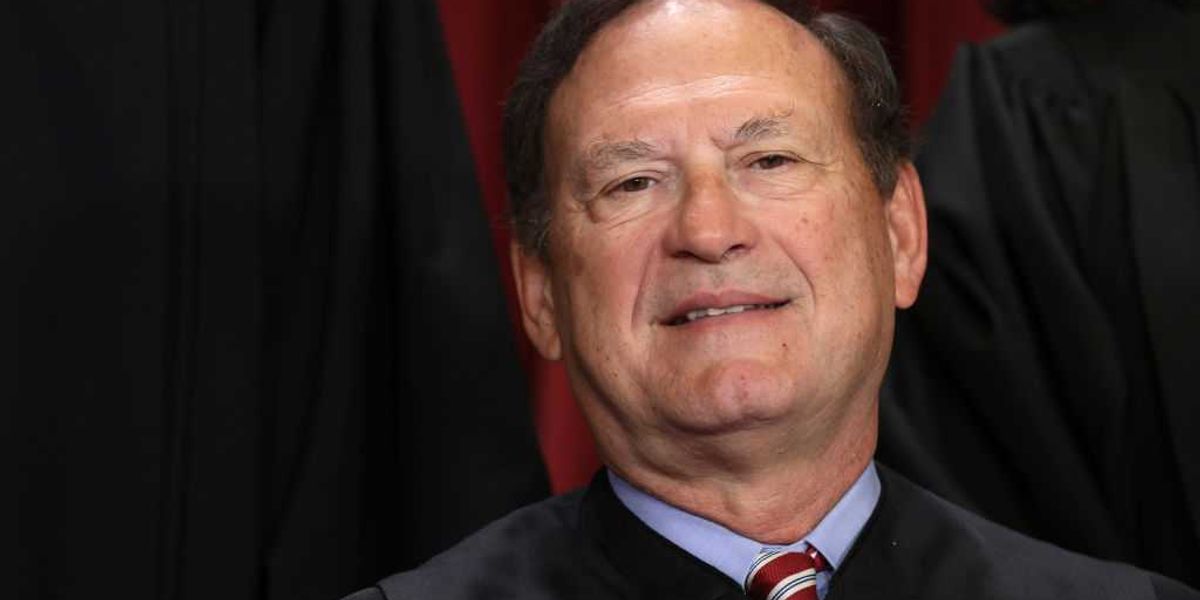The scope of President Donald Trump’s “one big, beautiful” bill is narrowing as Senate Majority Leader John Thune eyes a midweek vote to cement the president’s sweeping tax and immigration priorities into law.
Senate Parliamentarian Elizabeth MacDonough, an appointee of the late former Democratic Senate Majority Leader Harry Reid, has advised Senate Republicans that at least 25 provisions will have to be struck from the president’s landmark bill to comply with stringent rules governing the filibuster-proof budget reconciliation process. The unelected Senate official is likely to reject more provisions in the coming days, which could force GOP senators to quickly revise portions of the bill to ensure the legislation meets Thune’s commitment to enact at least $1.5 trillion in spending cuts over a decade. (RELATED: Trump Calls On Waffling Congress To Crush Biden’s Green ‘SCAM’)
The parliamentarian’s rulings that GOP senators cannot move forward with certain provisions of the bill under a simple majority vote threshold is a setback for some of Senate Republican’s ambitious legislative goals within the budget package. However, Thune has said that Senate Republicans were always aware that some provisions could ultimately fall out of the bill and were proactive to minimize the number of provisions that the parliamentarian could strike from the legislation.
MacDonough, who acts a de-facto referee for interpreting Senate rules, decides which provisions of Republicans’ bill complies with the Byrd rule — a process commonly referred to as a “Byrd bath” — which allows the upper chamber to budget-related legislation with 51 votes. Provisions identified by the parliamentarian as noncompliant would be subject to a 60-vote legislative threshold, effectively forcing GOP senators to strike the language from the budget package working its way through Congress.
Some of the provisions that MacDonough has advised do not meet budget reconciliation’s stringent rules were pay-fors that covered some of the costs of the president’s tax and spending agenda. The tax portion of Senate Republicans’ proposal is projected to add just over $440 billion to the deficit over a ten-year period, an estimate released Saturday night, the Joint Committee on Taxation found.
MacDonough ruled Saturday that a Senate proposal shifting some of the Supplemental Nutrition Assistance Program’s (SNAP) costs to states violates the Byrd rule. The Congressional Budget Office (CBO) estimated that a similar proposal in the House-passed bill requiring states to pay at least 5% of food stamp costs would have saved taxpayers nearly $130 billion over a ten-year period.
Senate Minority Leader Chuck Schumer has celebrated MacDonough’s decision to scrap certain provisions from the Senate draft of the president’s landmark bill, framing the parliamentarian’s ruling that GOP senators cannot shift SNAP costs onto states as a “small but important win.”
Senate Democrats previously expressed frustration with MacDonough for determining that a $15 federal minimum wage hike could not be incorporated in former President Joe Biden’s American Rescue Plan in February 2021.
WASHINGTON, DC – JANUARY 12: Police tape hangs from the handle of the door to the Senate Parliamentarian’s office at the U.S. Capitol following the January 6th riots on Jan 6, 2021. (Photo by Chip Somodevilla/Getty Images)
The parliamentarian advised the Senate Monday evening that a provision allowing states to conduct immigration enforcement — a responsibility usually claimed by the federal government — and language authorizing the executive branch to reorganize or eliminate federal agencies without congressional oversight does not comply with the Byrd rule.
MacDonough also determined that provisions requiring the federal government to sell certain electric vehicles (EV) and EV charging infrastructure it owns and a slimmed-down version of Republican Utah Sen. Mike Lee’s legislation to grant Congress oversight over the administrative state’s ability to issue major regulations violates budget reconciliation rules.
Senate Republicans are continuing to work through final details on the proposal’s most contentious provisions, such identifying savings to Medicaid, as the parliamentarian reduces the size of their tax and immigration bill.
Thune has voiced determination to pass the president’s sweeping legislative package by the White House’s preferred July 4 deadline. The majority leader previously told the DCNF in an interview he would keep the Senate in session through the scheduled July 4 recess until the budget package clears the upper chamber.
All content created by the Daily Caller News Foundation, an independent and nonpartisan newswire service, is available without charge to any legitimate news publisher that can provide a large audience. All republished articles must include our logo, our reporter’s byline and their DCNF affiliation. For any questions about our guidelines or partnering with us, please contact [email protected].
Read the full article here







![Antifa Members Officially Plead Guilty to Terror Charges in Texas [WATCH] Antifa Members Officially Plead Guilty to Terror Charges in Texas [WATCH]](https://www.lifezette.com/wp-content/uploads/2025/10/2025.10.09-01.35-lifezette-68e7ba0c8e807.jpg)



![Hakeem Jeffries Blows a Gasket On Live TV, Gets an ‘Iconic’ Eye Roll from CNBC Host [WATCH] Hakeem Jeffries Blows a Gasket On Live TV, Gets an ‘Iconic’ Eye Roll from CNBC Host [WATCH]](https://www.rvmnews.com/wp-content/uploads/2025/11/2025.11.22-10.33-rvmnews-69219197ec9ce.jpg)
